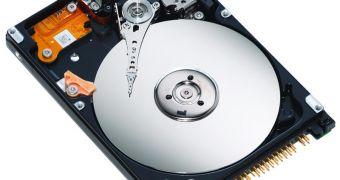Seagate, one of the leading manufacturers of storage solutions, is seriously considering getting more involved in the SSD market. The company plans to introduce its first SSD storage next year, but the products will not be meant for the consumer market. Along with the release of its first SSD drives, Seagate also plans to introduce a 2T-byte hard drive.
SSD is becoming an industry standard, but the consumer market will still rely on the current hard drives as the main storage solution, for at least an additional three years. "SSDs are not price-competitive yet", said Bill Watkins, the company's CEO, in an interview, claiming that the market is driven by cost-per-gigabyte, which SSDs can't provide. Watkins said that although SSDs provide features such as power savings, we won't see them in laptops in the next few years. He also said that Seagate will produce SSD storage for consumers "if the cost-per-gigabyte comes down to 10 cents".
Watkins also declared that SSDs have another issue, namely that they can't provide the high-storage space current hard drives can offer. And this is one issue that can seriously impact sales, as there is a significant demand for high amounts of storage space.
Seagate's SSD lineup will be mainly for data centers. These systems need to process data quickly, like indexing servers or search servers, which can temporarily store data until it is moved to a permanent storage device. With SSD technology hard drives have the ability to move data up to 10 times quicker than normal hard drives.
Seagate might want to reconsider their position on this "SSD for consumers" issue, as Intel and partner Micron recently announced that they succeeded in creating the world's first 34-nm 32 GB multilevel cell chip, which puts them on top of the competition.

 14 DAY TRIAL //
14 DAY TRIAL //